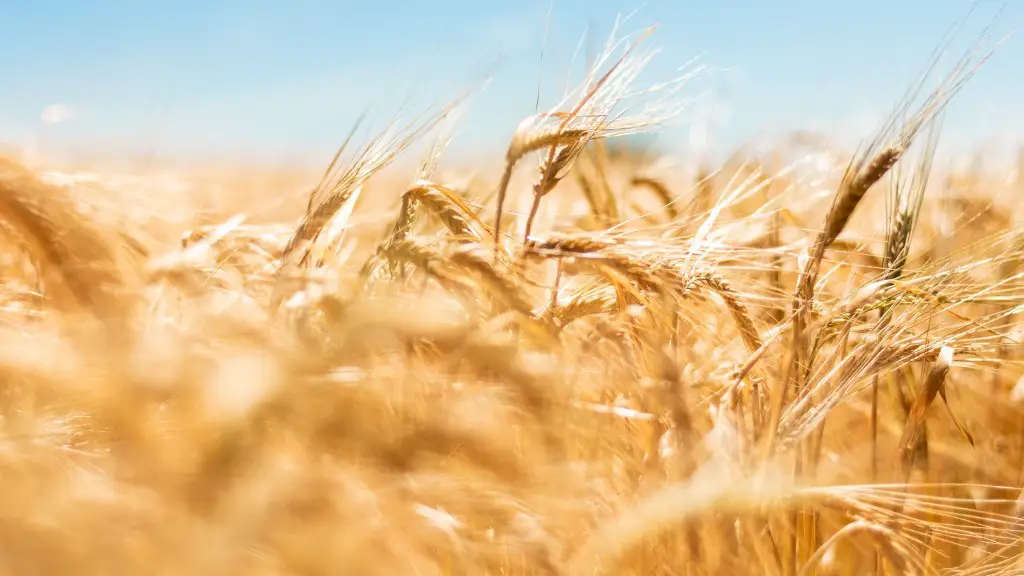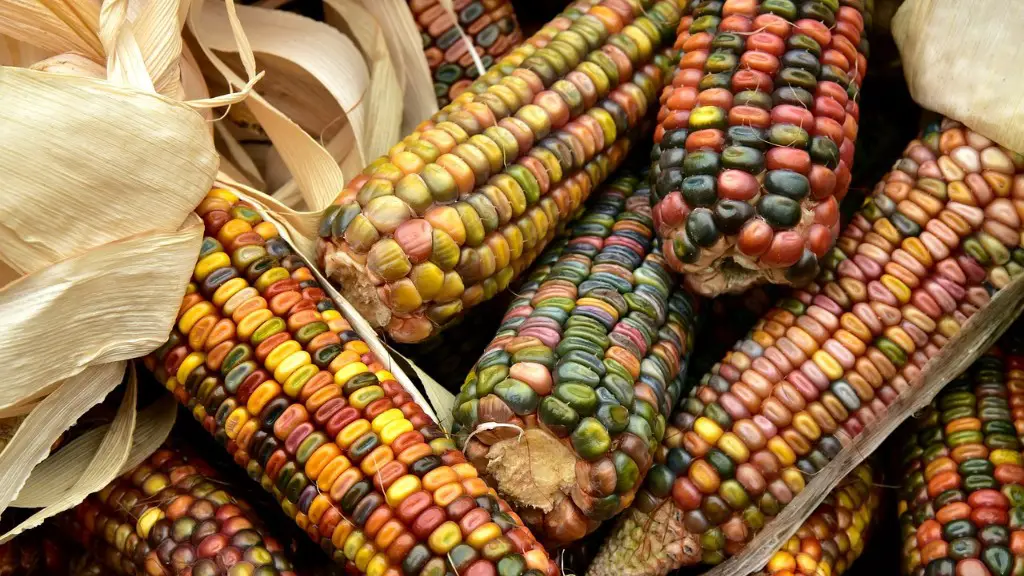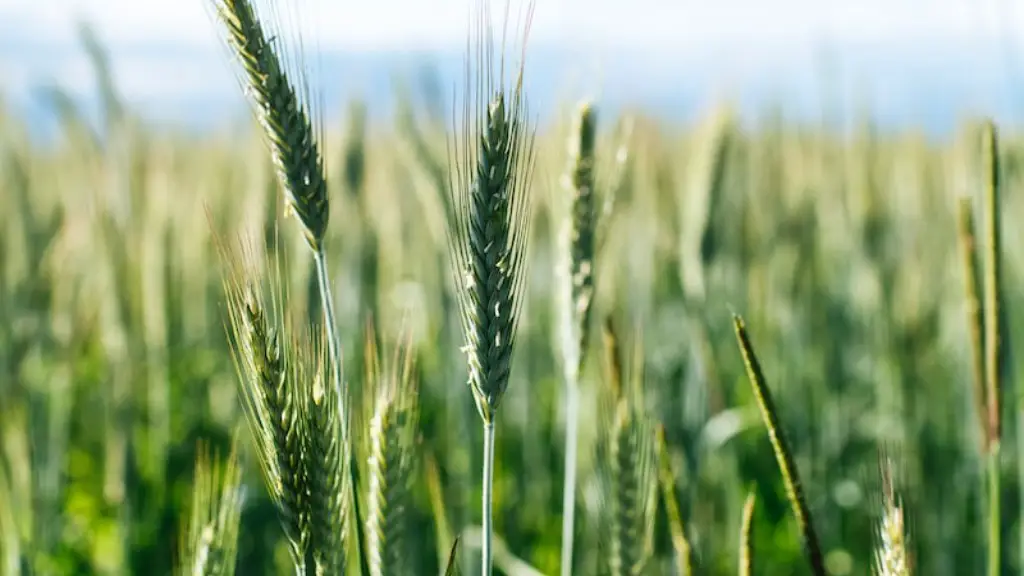Entomology in agriculture is the study of insects that cause damage to crops. This includes understanding the life cycles of the insects, their feeding habits, and the methods of control. The goal is to minimize the damage caused by these insects and to protect the yield of the crops.
Entomology in agriculture is the study of insects and their impact on crops. This includes their role in pollination, as well as the pests that can damage crops. Farmers and agricultural researchers use entomology to develop better ways to protect crops from insect damage.
What is a simple definition of entomology?
Entomology is the study of insects and their relationship to humans, the environment, and other organisms. Entomologists make great contributions to such diverse fields as agriculture, chemistry, biology, human/animal health, molecular science, criminology, and forensics. Insects play a vital role in our ecosystem, and entomologists strive to understand their behavior and biology in order to protect us from harm.
Agricultural entomology is the study of insects that are harmful to crops, fruits and vegetables. It also includes the study of beneficial insects that help to control these pests. Agricultural entomologists work to develop methods to control pests and to improve crop yields.
What is entomology and examples
Entomology is the study of insects, and any scientific study that focuses on insects can be considered an entomological study. This field includes the study of the insects’ morphology, physiology, behavior, genetics, biomechanics, taxonomy, and ecology.
Agricultural entomologists work to help farmers sustainably control pests while encouraging beneficial insects. They may work for private companies, the USDA, the CDFA, or academia. Medical entomologists work to control populations of insects that vector human diseases. They may work for private companies, the CDC, the NIH, or academia.
What are the three branches of entomology?
The Department of Entomology at Cornell University offers a wide range of concentration options for students interested in studying insects. These include general entomology, insect genetics, insect physiology, medical and veterinary entomology.
Entomology is the study of insects and other arthropods. The branches of entomology include insect ecology, insect morphology, insect pathology, insect physiology, insect taxonomy, insect toxicology, and industrial entomology. It also includes medical entomology and economic entomology.
What is the purpose of entomology?
Entomology is the study of insects and their relationship to humans, the environment, and other organisms. Entomologists make great contributions to such diverse fields as agriculture, chemistry, biology, human/animal health, molecular science, criminology, and forensics.
A medical entomologist is a scientist who studies insects that can carry and transmit diseases. They work to develop mosquito abatement programs that can reduce the populations of these insects and help to prevent the spread of diseases. A museum curator is responsible for the care and display of artifacts and specimens in a museum. They work to ensure that these items are properly preserved and that visitors can view and learn from them. A pest control advisor provides advice and guidance to people who want to rid their homes or businesses of pests. A pest control technician carries out the pest control plan advised by the advisor. A pest management specialist develops and implements programs to control pests in commercial or industrial settings. They may also research new methods of pest control. A pesticide development and analysis specialist develops and tests new pesticides. They also work to evaluate the effectiveness of existing pesticides. A pesticide use specialist works with farmers or other professionals to ensure that pesticides are used safely and effectively.
What type of degree is entomology
The most direct route to becoming an entomologist is to pursue a Bachelor of Science in Entomology. However, a Bachelor of Science in Biology or Zoology may also suffice. The important thing is to gain a strong foundation in the sciences, particularly in biology and entomology. With a solid educational foundation, you’ll be well on your way to a career as an entomologist.
Entomology is the scientific study of insects. The word “entomon” comes from the Greek word meaning “notched” or “segmented”, referring to the body plan of insects. Entomology includes the study of genetics, taxonomy, morphology, physiology, behaviour, and ecology of insects.
What are the 13 branches of entomology?
Out of all the branches of entomology, Insect Ecology, Insect Pathology, and Insect Physiology are the most important in terms of understanding how insects interact with their environment and with each other. Insect Taxonomy is also important in understanding the diversity of insects and how they are related to each other. Industrial Entomology is important for understanding the role of insects in industry and agriculture, and Medical and Veterinary Entomology are important for understanding the role of insects in human and animal health.
Entomologists are scientists who study insects. Insects are small animals that have six legs and three body parts (head, thorax, and abdomen). They can be found in almost every environment on Earth. Entomologists study all aspects of insects, including their behavior, ecology, Physiology, and evolution. Some entomologists specialize in studying specific groups of insects, such as bees, ants, or beetles. Others study insects that cause disease and discomfort for humans and animals, such as the screwworm fly. Agricultural entomologists study insects that infect crops.
How many years of college does it take to be an entomologist
The Bachelor of Science in Entomology is a degree program that requires 120 credits for completion, which can take about four years. The program provides students with a comprehensive understanding of insects, their ecology, and their importance in the environment. Students also gain skills in pest management, crop production, and other areas related to entomology.
Entomologists are scientists who study insects. They typically make around $53,997 per year, or $2596 per hour, in the United States. This is a relatively good salary, especially considering the cost of living in the United States.
What training is required to be a entomologist?
A doctoral degree in entomology, biology or zoology is required to become an entomologist. High school courses in agricultural education, earth science, chemistry, biology, botany and mathematics are recommended for those interested in pursuing a career in entomology.
In entomology, equipment refers to the tools used by scientists to study and collect insects. This can vary depending on the focus of the study, but may include items such as a notebook and pen for recording observations, tubes or pots for collecting specimens, and a field guide for identifying different species.
What field does entomology fall under
Insects are one of the most successful groups of animals on Earth, and they have evolved to live in almost every environment imaginable. Entomologists study how insects live and how they interact with their ecosystems. This can include understanding how insects pollinate plants, how they spread diseases, and how they are used in agriculture. Entomologists also work to control insect pests that can damage crops or carry diseases.
Yes, entomophagy is the technical term for eating insects. Humans have been harvesting the eggs, larvae, pupae, and adults of certain insect species from forests or other habitats for thousands of years in order to eat them.
Final Words
Entomology in agriculture is the scientific study of insects that are important to crops. This includes understanding their life cycles, preferences, and behaviors in order to develop better ways to manage them. Insects can be both helpful and harmful to crops, so entomologists work to find the best way to keep crop-destroying insects at bay while still preserving the ones that are beneficial.
Entomology in agriculture is the study of insects that cause damage to crops. This field of study also includes the management and control of these pests. Insects can cause serious economic losses in agriculture, so entomologists work to find more effective ways to control them.





